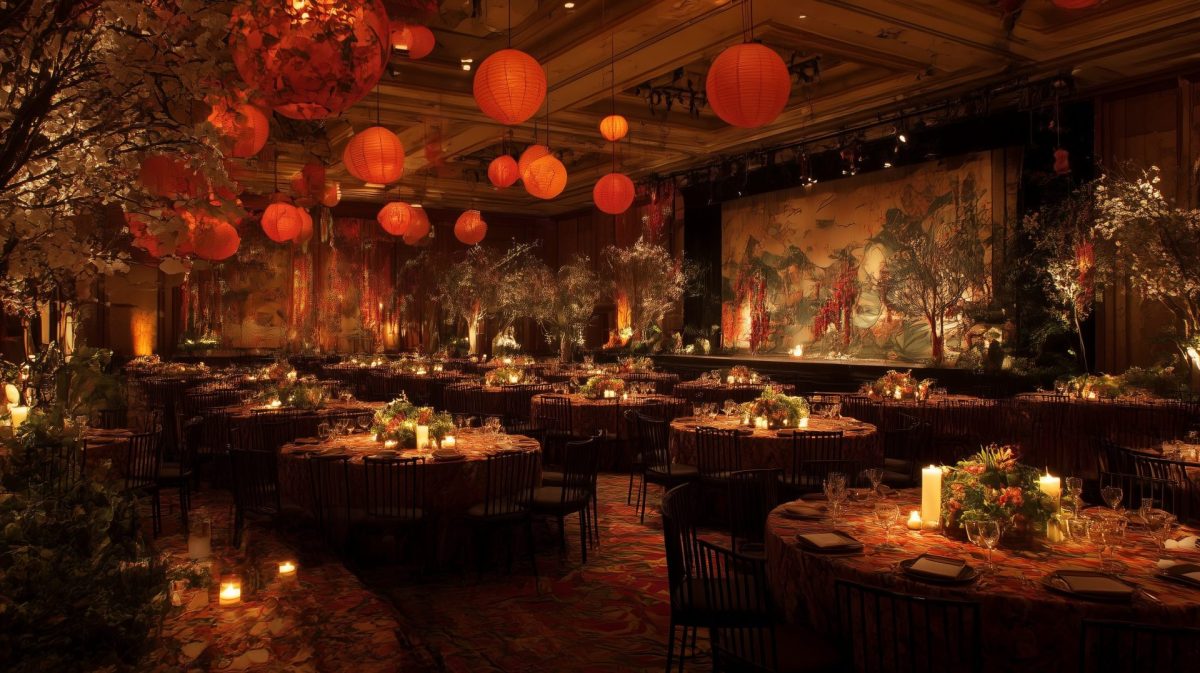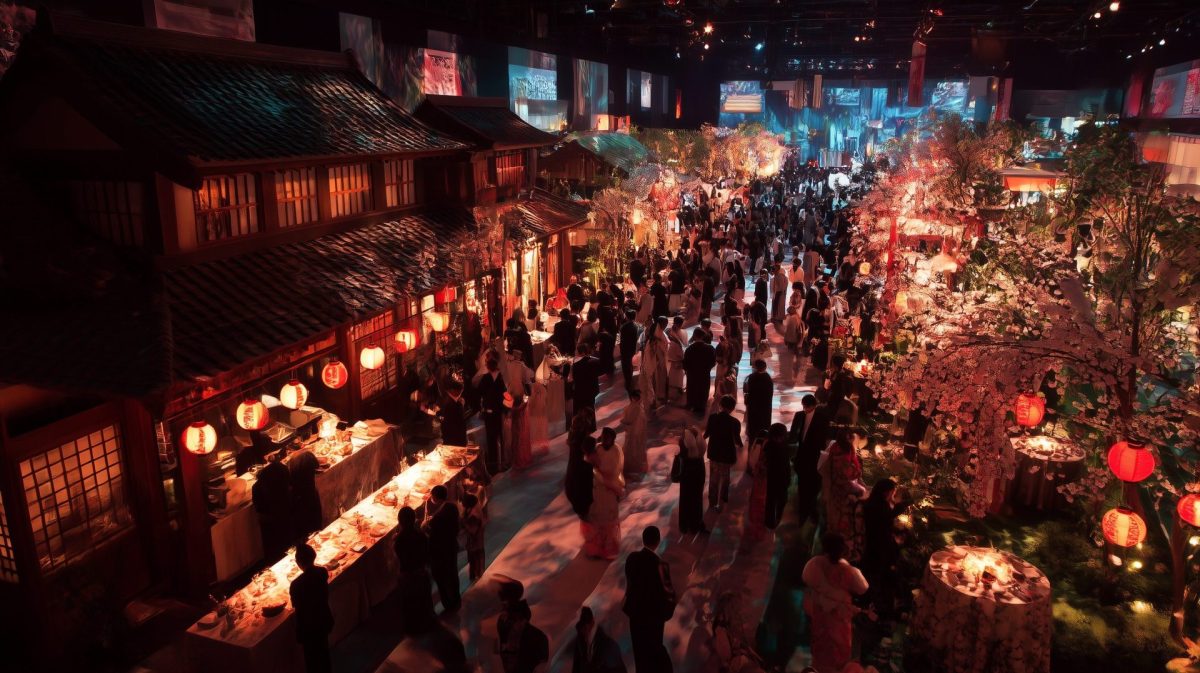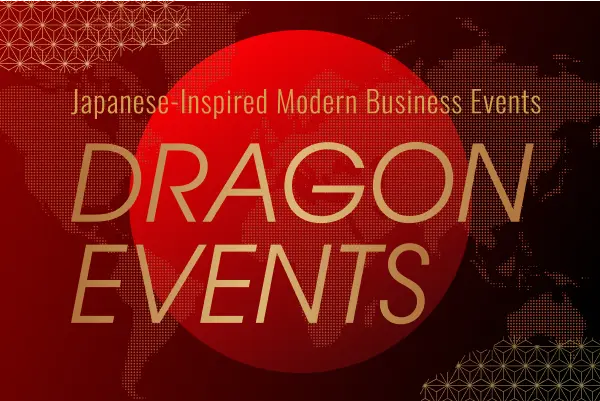Enchanting Asian Businesses with Japanese Corporate Events: Latest Trends and Keys to Success

Introduction
The landscape of business events at home and abroad has undergone significant change in recent years. In Asia, travel demand has rapidly rebounded; in 2024, Japan welcomed 36.9 million foreign visitors—about 16 percent more than the record set in 2019. The momentum has continued into the first half of 2025: by the end of June 21.51 million people had visited Japan, putting the year on track for an all‑time high. Japan consistently ranks among the world’s top destinations for culture, safety and convenience.
Issue taps into that growing interest by outlining themes that will make Asian readers think, “I want to consult with GLOBAL PRODUCE (GP) and hold an event in Japan.” We present the latest event trends, the advantages of hosting in Japan, ideas for sustainable programs, and advice based on GP’s own experience.
Event Trends Capturing the Attention of Asian Companies (2025 Edition)
1. Interactive and Immersive Experiences
Gamification – Game‑style programs with point systems and leaderboards encourage participants to actively get involved.
AR/VR and holograms – Augmented reality and virtual reality let guests experience products virtually, while projection mapping can transform a venue’s atmosphere. Immersive experiences such as virtual test drives surprise and delight attendees.
AI‑driven personalization – AI chatbots and recommendation functions tailor sessions and networking opportunities to each attendee, boosting satisfaction. Chatbots also handle questions and provide useful information throughout the event.
2. The Rise of Hybrid Events
After the pandemic, hybrid events—combining online and in‑person components—have become a standard format. They remove geographic and time barriers; surveys show roughly half of participants at some hybrid events are first‑timers. Real‑time polls and live Q&As help virtual participants feel connected, while reduced travel contributes to sustainability.
3. Sustainability and Social Responsibility
Reusable décor and digital programs – Even Japanese award ceremonies increasingly use reusable decorations and digital programs to lessen their environmental impact.
Use of local ingredients – At Aichi Sky Expo, interiors and catering feature local agricultural products and materials, supporting the regional economy.
Renewable energy – Event venues across Japan are adopting renewable energy. Facilities like Pacifico Yokohama and Aichi Sky Expo use solar and wind power, and Aichi Sky Expo is the first exhibition hall in Japan to earn CASBEE S rank and ZEB Ready certification. Systems are also in place to monitor CO₂ emissions and offer carbon‑offset options for events.
Sophisticated Digital Tools
Personalized mobile apps – Dedicated event apps now commonly provide personalized schedules, real‑time notifications and networking opportunities, enhancing the attendee experience.
Integration with social media – Hashtags, live streaming and user‑generated content amplify the event’s reach and strengthen branding.
Venue design tools – 3‑D simulations and seating‑chart software enable teams to design venues collaboratively even when they are far apart, improving efficiency.
The Benefits of Hosting Corporate Events in Japan
1. Unique Culture and Rich Experiences
Japan is a country where traditional culture and cutting‑edge technology coexist. From parties at shrines to karate lessons in Okinawa and snow‑shoeing in Hokkaido, a wide range of activities is possible. These unique experiences inspire participants and make events truly memorable.
2. Safe, Reliable Infrastructure and High Trust
Top‑level safety – Tokyo and Osaka are among the world’s safest cities, ranking highly in infrastructure and healthcare indices, with Japan’s peace rating also near the top. Organisers can operate with confidence.
Efficient transportation – Public transit—including high‑speed rail—runs punctually and enables low‑emissions travel. Easy international access is another factor behind the surge in tourism.
World‑class service – Japan’s hospitality industry is renowned worldwide. Polite, attentive staff at hotels and venues heighten attendees’ satisfaction.
3. Sustainability‑focused Host Cities
The national and local governments actively promote environmentally friendly events. Broad initiatives include the spread of renewable energy, waste reduction, local production for local consumption and an SDG‑based evaluation system for the MICE sector. Aichi Sky Expo, for example, has obtained ZEB Ready certification and uses 100 percent clean energy.
4. A Hub for Academic and Business Exchange
Japan is known for its concentration of research and industry, hosting the largest number of conferences in the Asia‑Pacific region. Numerous global companies and research institutes are present, making it easy to organize site visits and networking alongside events. The country’s many Nobel laureates underscore its technological and academic strength.
Japanese Award Ceremonies and GP’s Strengths
Characteristics of Japanese‑style Awards
According to GP’s journal, Japanese corporate award ceremonies are not just evaluations of performance; they celebrate effort and teamwork, boosting employees’ sense of belonging and motivation. Recently these events have evolved into immersive experiences that employ cinematic visuals, sophisticated lighting and spatial design. Sustainable touches, such as reusable décor and catering with local ingredients, are also a priority.
GP’s Cross‑cultural Event Cases
GP organizes numerous events for international clients. Producer Natsuro Okutani cites three essentials for success: establish a clear timeline, Statement of Work and proposal materials, and make sure the client and production team share the same vision. He notes that the emotional triggers for Japanese and overseas audiences are largely the same; the key is to balance traditional arts with modern presentation.
A notable example is the WPC Networking Event held at a stylish nightclub in Ginza. With hexagonal screens, dynamic lighting and a stage featuring the dance group ARAIFUMI—who blend jazz dance with traditional Japanese movement—the event merged culture and modernity to captivate an international audience. In another case, the Lenovo Kickoff 2025 opened with a kyōgen performance, then shifted to a banquet in a space designed to evoke a traditional izakaya, giving foreign guests an authentic taste of Japan.
These cases show that GP excels at flexible, culture‑rooted production. When Asian companies plan events in Japan, it’s essential to craft programs that resonate across cultural and linguistic divides.
Advice for Asian Clients

Choose your host city – Beyond major cities like Tokyo and Osaka, regions such as Kyoto, Hokkaido and Okinawa offer distinct experiences. Japan spans more than 20 degrees of latitude, so short journeys can reveal vastly different landscapes and cultures.
Incorporate cultural elements – Include swordsmanship demos, washi‑paper workshops or local festivals so participants can experience Japanese culture. Traditional arts move people regardless of nationality.
Prioritize sustainability – Choose venues that use renewable energy and offer carbon‑offset plans, and commit to recycling and digital practices. Serving local foods and products also contributes to the region.
Consider hybrid formats – Streaming your event lets employees or stakeholders who cannot attend in person take part, expanding reach and improving cost‑effectiveness. GP has amassed know‑how from multiple hybrid projects.
Partner with a trusted producer – Working with an event company familiar with local culture and regulations smooths the way through complex procedures such as fire codes and labor laws. GP’s “TEAM DRAGON” includes many bilingual staff members, ensuring smooth communication with overseas clients.
Conclusion
Japan’s business event market continues to grow as it embraces sustainability and digital technology. The country’s safe, convenient infrastructure, unique cultural experiences, advanced technologies and hospitality make it an attractive host location for Asian businesses. GP collaborates with clients from Japan and abroad on everything from awards ceremonies to conferences and hybrid events. If your company is considering an event in Japan, please consult with GP. Together, we can combine fresh ideas with Japan’s unique charm to create events that leave a lasting impression.
SUPERVISED BY

A collective of event production professionals handling the planning, production, and management of over 250 events annually.
From internal gatherings like shareholders' meetings, anniversaries, and award ceremonies to external PR events and exhibitions, we design and deliver optimal communication solutions. Whether in-person, online, or hybrid, we give form to the messages companies wish to convey.




